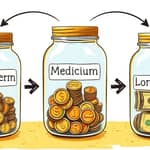
Every month, millions of credit card holders face a choice: pay only the minimum due or allocate extra funds to chip away at their balances. While minimum payments may seem manageable at first glance, they can trap you in a cycle of debt and anxiety. This article explores why paying more than the minimum is essential for preserving your credit health and securing your financial future.
Opting for the bare minimum payment might keep your account current, but it brings hidden costs that accumulate over time. By paying only what is required, you inadvertently extend the timeline needed to clear your balance, all while the credit card company collects more in fees.
High interest charges can transform a manageable balance into an overwhelming burden. With higher interest payments over time, the amount you owe can double or even triple before you realize it. These added costs drain your resources and delay your progress toward financial freedom.
Choosing to pay only the minimum can feel safe in the short term, but it jeopardizes your long-term goals. Reducing debt aggressively builds stability and confidence, while the minimum payment trap fosters perpetual worry.
Your aspirations—owning a home, funding education, or saving for retirement—require financial momentum. Every dollar spent on interest is a dollar taken away from investments in your future. This funds spent on interest could instead fuel down-payments, scholarships, or retirement accounts.
Consider this: someone carrying a $5,000 balance at 20% APR who makes only minimum payments might take over a decade to clear the debt. Meanwhile, the cumulative interest paid can far exceed the original balance. The true cost of minimal payments is the dreams put on hold.
Consumers generally fall into two categories: transactors and revolvers. Transactors pay their statements in full each month, avoiding interest altogether. Revolvers carry balances forward, often making only minimum payments. Revolving debt users are seen as higher risk by credit bureaus and lenders.
Being a revolver might offer short-term liquidity, but it comes at the expense of your creditworthiness. Over time, persistent reliance on minimum payments can lower your score and increase borrowing costs when you most need credit.
Economic pressures like inflation and stagnant wages have pushed more people into the minimum payment bracket. Recent data shows more than 10% of consumers are making only the minimum payment—a record high. Delinquency rates have also climbed, signaling widespread financial stress.
These numbers highlight the growing challenge households face. Yet they also underscore the opportunity: by shifting behaviors now, you can break free from the pattern and emerge stronger when economic conditions improve.
Breaking the minimum payment habit starts with a committed plan. Even modest increases to your monthly payment can yield dramatic results. Every extra dollar reduces the principal balance, cutting future interest and accelerating payoff.
By consistently contributing more than the required minimum, you’ll experience the confidence boost of seeing balances fall faster. This approach shifts the focus from mere survival to active wealth-building.
Managing credit responsibly is about more than just numbers; it reflects your relationship with money and your long-term vision. As you pay down debt, you’ll notice improved credit scores and access to better loan terms. This progress can become a powerful motivator.
Pair debt repayment with an emergency fund goal. A cushion of three to six months’ living expenses can prevent you from sliding back into high-interest borrowing when unexpected costs arise. This combination of build a strong financial cushion and disciplined repayment fosters resilience.
Ultimately, choosing to pay more than the minimum is a statement of intent. It signals that you value your future more than the fleeting comfort of delayed payments. This strategy can empower you to take control of your financial destiny, unlocking opportunities you once thought out of reach.
Remember, every extra dollar you allocate toward your credit card balance is a victory. Over time, these victories accumulate into freedom—freedom to invest, to dream, and to live without the shadows of debt weighing you down.
References













